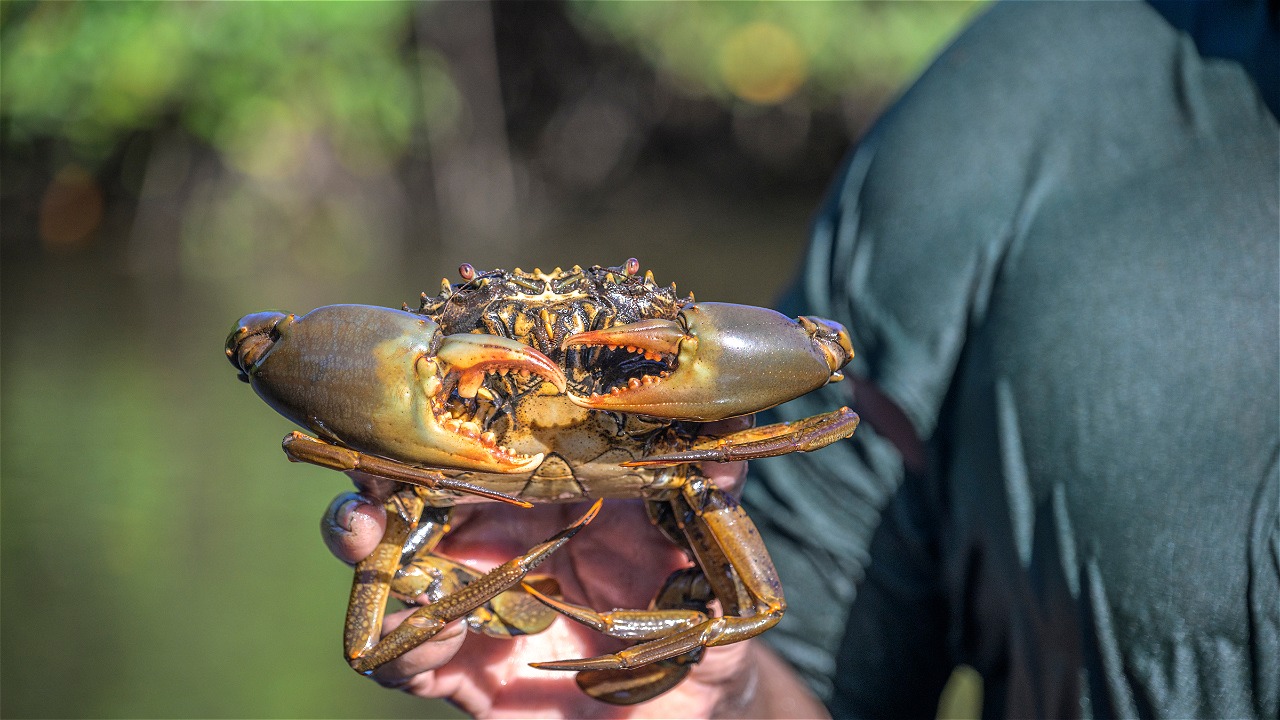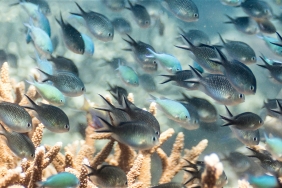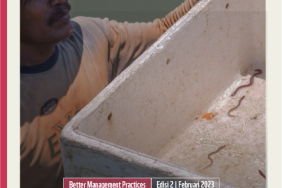INAUGURAL MANGROVE CRAB BMP TRAINING CONDUCTED IN PEMALANG
By: Windy Rizki (Capture Fisheries Officer, WWF Indonesia)
Capture and handling guidelines or better known as Better Management Practices (BMP) for mangrove crab commodities have been released. Mangrove crab BMP is one of a series of guidelines for capture fisheries published by WWF-Indonesia. This guidebook was published after a review with stakeholders consisting of academics, businessmen, government and fishermen with the aim that the contents of the mangrove crab BMP document are more comprehensive and right on target.
The mangrove crab BMP training conducted in Mojo Village, Pemalang Regency in February 2016, was the first to be conducted after the document was published in early 2016. This activity is one of the stages in the mangrove crab fisheries improvement program facilitated by TAKA Foundation with the support of WWF-Indonesia. To initiate this activity, coordination was previously carried out with DKP Pemalang as the local fisheries management authority. DKP Pemalang provides full support for fisher capacity building efforts as part of the improvement of sustainable mud crab fisheries in the location under its authority.
The event, which was conceptualized as a means of learning together with fishermen about sustainable mangrove crab fishing procedures, involved 15 members of the "Kepiting Lestari Jaya" fishermen group as assisted by TAKA Foundation and one extension worker from the local DKP, Mr. Suparjo. The moderator was Mr. Tolani, a local community leader. The training had three main events, namely filling in the pre-test, providing material and filling in the post-test.
The completion of the pre-test for participants who attended was the beginning of the Mangrove Crab BMP training. The completion of the pre-test for assisted fishermen is a benchmark to determine the level of understanding of fishermen about sustainable mangrove crab fisheries management. One of the findings of this activity is that some fishermen do not know the reason for the prohibition of catching mangrove crab eggs that has been released by the government through the Minister of Marine and Fisheries Regulation No. 1/2015. Furthermore, the WWF-Indonesia team delivered material on the guidelines for catching mangrove crabs in accordance with BMPs and continued with filling out the post-test. Fishermen became aware of the importance of sustainable mangrove crab management, for example by not catching crabs that are laying eggs to maintain the population in nature. The average increase in scores obtained from pre-test and post-test scores was 17.32%.
After the three main series were completed, participants had the opportunity to learn firsthand how to fill in the logbook, starting from measuring the width of the mangrove crab carapace to recording the measurement results in the logbook form. Initially, fishermen were reluctant when asked to come forward to take measurements of mangrove crabs, but after being given examples by Mr. Suparjo and Miko from the TAKA Foundation on the correct measurement of crabs and according to applicable standards, the enthusiasm of fishermen appeared again.
The fishermen seemed very excited to participate in this joint learning activity, especially when there was a question and answer quiz given by the team in the ice breaking session, the fishermen shouted at each other to answer it. Although there were some fishermen who had difficulty in writing standard Indonesian in BMP, it did not dampen the desire of the fishermen to get better at managing their fisheries.
There is still a lot of work to be done to improve the mangrove crab fishery in Mojo Village, Pemalang Regency. Based on the results of the assessment of the level of BMP compliance conducted by the team involving the fishermen as respondents, the number is 46%. When calculated using WWF-Indonesia compliance standards, this value is still far from the expected 70%. Several points must be improved, including data recording using a logbook system, law enforcement aspects, and synergy between local fisheries management institutions.




